An Essay on the Principle of Population
The book An Essay on the Principle of Population was first published anonymously in 1798 through J. Johnson (London). The author was soon identified as The Reverend Thomas Robert Malthus. While it was not the first book on population, it has been acknowledged as the most influential work of its era. Its 6th Edition was independently cited as a key influence by both Charles Darwin and Alfred Russel Wallace in developing the theory of natural selection. Warning: template has been deprecated. — Excerpted from An Essay on the Principle of Population on Wikipedia , the free encyclopedia.
PRINCIPLE OF POPULATION ,
AS IT AFFECTS
THE FUTURE IMPROVEMENT OF SOCIETY.
WITH REMARKS
ON THE SPECULATIONS OF MR. GODWIN,
M. CONDORCET,
AND OTHER WRITERS.
PRINTED FOR J. JOHNSON, IN ST. PAUL'S
CHURCHYARD.
The following Essay owes its origin to a conversation with a friend, on the subject of Mr. Godwin's Essay, on avarice and profusion, in his Enquirer. The discussion, started the general question of the future improvement of society; and the Author at first sat down with an intention of merely stating his thoughts to his friend, upon paper, in a clearer manner than he thought he could do, in conversation. But as the subject opened upon him, some ideas occurred, which he did not recollect to have met with before; and as he conceived, that every, the least light, on a topic so generally interesting, might be received with candour, he determined to put his thoughts in a form for publication.
The essay might, undoubtedly, have been rendered much more complete by a collection of a greater number of facts in elucidation of the general argument. But a long and almost total interruption, from very particular business, joined to a desire (perhaps imprudent) of not delaying the publication much beyond the time that he originally proposed, prevented the Author from giving to the subject an undivided attention. He presumes, however, that the facts which he has adduced, will be found, to form no inconsiderable evidence for the truth of his opinion respecting the future improvement of mankind. As the Author contemplates this opinion at present, little more appears to him to be necessary than a plain statement, in addition to the most cursory view of society, to establish it.
It is an obvious truth, which has been taken notice of by many writers, that population must always be kept down to the level of the means of subsistence; but no writer that the Author recollects, has inquired particularly into the means by which this level is effected: and it is a view of these means, which forms, to his mind, the strongest obstacle in the way to any very great future improvement of society. He hopes it will appear, that, in the discussion of this interesting subject, he is actuated solely by a love of truth; and not by any prejudices against any particular set of men, or of opinions. He professes to have read some of the speculations on the future improvement of society, in a temper very different from a wish to find them visionary; but he has not acquired that command over his understanding which would enable him to believe what he wishes, without evidence, or to refuse his assent to what might be unpleasing, when accompanied with evidence.
The view which he has given of human life has a melancholy hue; but he feels conscious, that he has drawn these dark tints, from a conviction that they are really in the picture; and not from a jaundiced eye, or an inherent spleen of disposition. The theory of mind which he has sketched in the two last chapters, accounts to his own understanding, in a satisfactory manner, for the existence of most of the evils of life; but whether it will have the same effect upon others must be left to the judgement of his readers.
If he should succeed in drawing the attention of more able men, to what he conceives to be the principal difficulty in the way to the improvement of society, and should, in consequence, see this difficulty removed, even in theory, he will gladly retract his present opinions, and rejoice in a conviction of his error.
June 7, 1798.
CHAP. VIII.
CHAP. XIII.
CHAP. XVII.
CHAP. XVIII.
This work was published before January 1, 1929, and is in the public domain worldwide because the author died at least 100 years ago.
Public domain Public domain false false
- Proofread texts
- Population studies
- Pages containing deprecated templates/Wikipediaref
- Headers applying DefaultSort key
- Ready for export

Navigation menu
- Project Gutenberg
- 73,230 free eBooks
- 6 by T. R. Malthus
An Essay on the Principle of Population by T. R. Malthus
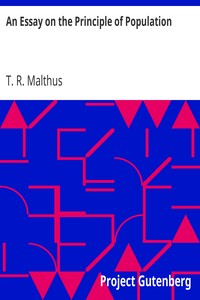
An Essay on the Principle of Population

50 pages • 1 hour read
A modern alternative to SparkNotes and CliffsNotes, SuperSummary offers high-quality Study Guides with detailed chapter summaries and analysis of major themes, characters, and more.
Chapter Summaries & Analyses
Chapters 1-2
Chapters 3-5
Chapters 6-9
Chapters 10-15
Chapters 16-19
Key Figures
Index of Terms
Important Quotes
Essay Topics
Discussion Questions
Summary and Study Guide
An Essay on the Principle of Population by Thomas Malthus was first published anonymously in 1798. Its core argument, that human population will inevitably outgrow its capacity to produce food, widely influenced the field of early 19th century economics and social science. Immediately after its first printing, Malthus’s essay garnered significant attention from his contemporaries, and he soon felt the need to reveal his identity. Although it was highly controversial, An Essay on the Principle of Population nevertheless left its impression on foundational 19th century theorists, such as naturalist Charles Darwin and economists Friedrich Engels and Karl Marx. Modern economists have largely dismissed the Malthusian perspective . Principally, they argue Malthus underappreciated the exponential growth brought about by the advent of the Industrial Revolution; by the discovery of new energy sources, such as coal and electricity; and later by further technological innovations. These modern criticisms are easily defended with historical retrospective.
Malthus’s essay has been revised several times since its publication. This summary focuses on the contents of the first edition. In 1806, Malthus revamped his work into four books to further discuss points of contention in the first edition and address many of the criticisms it received. Three more editions followed (published in 1807, 1817, and 1826 respectively), each modifying or clarifying points made in the second version.
Get access to this full Study Guide and much more!
- 7,350+ In-Depth Study Guides
- 4,950+ Quick-Read Plot Summaries
- Downloadable PDFs
Although Malthus’s basic stance on the unsustainable growth of population to food production remains the same throughout all versions, the most dramatic change in format and content is found between the first and second editions. The first edition is notable for its long and detailed critique of the works of William Godwin, Marquis de Condorcet, and Richard Price on the perfectibility of humankind. Its lack of “hard data” and its unpracticed opinions on sex and reproduction were heavily criticized by his contemporaries. The 1806 publication, written at a later point in Malthus’s life, attempts to address these issues by focusing less on critiquing the works of other theorists and offering better data on the fluctuation of population growth throughout various European countries and colonies (Malthus, Thomas Robert. An Essay on the Principle of Population: the 1803 edition . Yale University Press. 2018).
The SuperSummary difference
- 8x more resources than SparkNotes and CliffsNotes combined
- Study Guides you won ' t find anywhere else
- 100+ new titles every month
An Essay on the Principle of Population begins with a preface and is subsequently separated into eleven chapters. The preface reveals that a conversation with a friend on the future improvement of society was what sparked Malthus’s inspiration for this work. Chapter 1 further credits the works of David Hume, Alfred Russel, Adam Smith, and many others for inspiring his own writing. He postulates that population grows exponentially, whereas food production only increases in a linear fashion. This disparity in power will inevitably lead to overpopulation and an inadequate amount of food for subsistence.
Chapter 2 further details the above premise. Malthus imagines a world of abundance. In such a society of ease and leisure, no one would be anxious about providing for their families, which incentivizes them to marry early, causing birth rates to explode. When there are too many people and too little an increase in food to support them, the lower classes will be plunged into a state of misery. Thus, Malthus concludes that population growth only happens when there is an increase in subsistence, and misery and vice keep the world from overpopulation.
In chapters 3, 4, and 5, Malthus applies his theory to different stages of society. He argues that “savage” and shepherding societies never grow as fast as their “civilized” counterparts because various miseries keep their numbers in check. Among “savage” societies, a lack of food and a general disrespect of personal liberties prevent their numbers from increasing rapidly. Shepherding communities, meanwhile, often wage war over territories and suffer a high mortality rate. Civilized societies grew rapidly after adopting the practice of tilling, but due to exhausting most fertile land, their numbers no longer increase at the same rate as before.
The following two chapters are notable because they are the only ones that contain hard data. Malthus cites philosopher Richard Price for his analysis of population in America and references demographer Johann Peter Süssmilch for his work on Prussia. Malthus uses both these examples to prove that population fluctuates in accordance with the quantity of food produced. Chapters 8 and 9 are dedicated to critiquing mathematician Marquis de Condorcet’s work while chapters 10 to 15 do the same for political philosopher William Godwin. Malthus rejects the idea of mankind as infinitely perfectible and dismisses charity as a method to relieve poverty.
Chapters 16 and 17 propose the increase of food production as the only solution to reduce extreme poverty and misery among the lower class. Malthus maintains that donating funds is but a temporary relief to aid the most unfortunate; only a permanent increase in agricultural yield can grow the lower class’s purchasing power. Nevertheless, the final two chapters remind readers that misery and happiness must coexist. The law of nature, the way of living intended by God and demonstrated by Malthus’s population theory, requires both wealth and poverty to function.

Don't Miss Out!
Access Study Guide Now
Ready to dive in?
Get unlimited access to SuperSummary for only $ 0.70 /week
Featured Collections
Business & economics.
View Collection
European History
Philosophy, logic, & ethics, poverty & homelessness, science & nature.

On The Site
- Rethinking the Western Tradition
- business & economics
An Essay on the Principle of Population
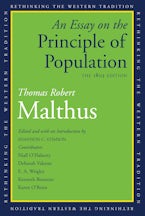
The 1803 Edition
by Thomas Robert Malthus
Edited by Shannon C. Stimson
Series: Rethinking the Western Tradition
- Request Print Exam/Desk Copy
- Request eBook Exam Copy
624 Pages , 5.50 x 8.25 x 1.25 in , 2 b-w illus.
- 9780300177411
- Published: Tuesday, 13 Feb 2018
- 9780300231892
Also Available At:
- Barnes & Noble
- Seminary Co-op
- Description
Thomas Robert Malthus (1766–1834) was an English cleric and scholar. Shannon C. Stimson holds the Leavey Chair in the Foundations of American Freedom at Georgetown University. Her books include After Adam Smith: A Century of Transformation in Politics and Political Economy , Ricardian Politics , both with Murray Milgate, and The American Revolution in the Law .
“This affordable version represents significant added value, not only by providing a crisp readable text, but by its inclusion of five interpretive essays.”—Choice “This new edition fills a real gap and makes available a text of pivotal significance in nineteenth and twentieth century intellectual history. The ancillary essays make this a very useful edition for students and scholars alike.”—Robert Mayhew, author of Malthus: The Life and Legacies of an Untimely Prophet
Related Books
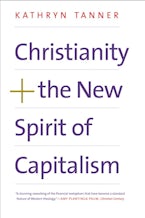
Sign up for updates on new releases and special offers
Newsletter signup, shipping location.
Our website offers shipping to the United States and Canada only. For customers in other countries:
Mexico and South America: Contact TriLiteral to place your order. All Others: Visit our Yale University Press London website to place your order.
Shipping Updated
Learn more about Schreiben lernen, 2nd Edition, available now.
We will keep fighting for all libraries - stand with us!
Internet Archive Audio

- This Just In
- Grateful Dead
- Old Time Radio
- 78 RPMs and Cylinder Recordings
- Audio Books & Poetry
- Computers, Technology and Science
- Music, Arts & Culture
- News & Public Affairs
- Spirituality & Religion
- Radio News Archive

- Flickr Commons
- Occupy Wall Street Flickr
- NASA Images
- Solar System Collection
- Ames Research Center

- All Software
- Old School Emulation
- MS-DOS Games
- Historical Software
- Classic PC Games
- Software Library
- Kodi Archive and Support File
- Vintage Software
- CD-ROM Software
- CD-ROM Software Library
- Software Sites
- Tucows Software Library
- Shareware CD-ROMs
- Software Capsules Compilation
- CD-ROM Images
- ZX Spectrum
- DOOM Level CD

- Smithsonian Libraries
- FEDLINK (US)
- Lincoln Collection
- American Libraries
- Canadian Libraries
- Universal Library
- Project Gutenberg
- Children's Library
- Biodiversity Heritage Library
- Books by Language
- Additional Collections

- Prelinger Archives
- Democracy Now!
- Occupy Wall Street
- TV NSA Clip Library
- Animation & Cartoons
- Arts & Music
- Computers & Technology
- Cultural & Academic Films
- Ephemeral Films
- Sports Videos
- Videogame Videos
- Youth Media
Search the history of over 866 billion web pages on the Internet.
Mobile Apps
- Wayback Machine (iOS)
- Wayback Machine (Android)
Browser Extensions
Archive-it subscription.
- Explore the Collections
- Build Collections
Save Page Now
Capture a web page as it appears now for use as a trusted citation in the future.
Please enter a valid web address
- Donate Donate icon An illustration of a heart shape
Malthus, Thomas - An Essay on the Principal of Population (1798)
Bookreader item preview, share or embed this item, flag this item for.
- Graphic Violence
- Explicit Sexual Content
- Hate Speech
- Misinformation/Disinformation
- Marketing/Phishing/Advertising
- Misleading/Inaccurate/Missing Metadata
plus-circle Add Review comment Reviews
3 Favorites
DOWNLOAD OPTIONS
For users with print-disabilities
IN COLLECTIONS
Uploaded by MarcMichael1977 on March 24, 2017
SIMILAR ITEMS (based on metadata)
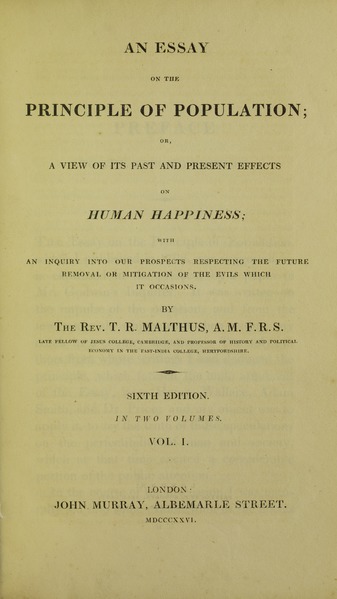
Part of: An Essay on the Principle of Population, 2 vols. [1826, 6th ed.] An Essay on the Principle of Population, vol. 1 [1826, 6th ed.]
- Thomas Robert Malthus (author)
Vol. 1 of the 6th expanded edition of Essay on the Principle of Population. In this work Malthus argues that there is a disparity between the rate of growth of population (which increases geometrically) and the rate of growth of agriculture (which increases only arithmetically). He then explores how populations have historically been kept in check.
- EBook PDF This text-based PDF or EBook was created from the HTML version of this book and is part of the Portable Library of Liberty.
- Facsimile PDF This is a facsimile or image-based PDF made from scans of the original book.
- Kindle This is an E-book formatted for Amazon Kindle devices.
An Essay on the Principle of Population, or a View of its Past and Present Effects on Human Happiness; with an Inquiry into our Prospects respecting the Future Removal or Mitigation of the Evils which it Occasions (London: John Murray 1826). 6th ed.
The text is in the public domain.
- Economic theory. Demography
Related Collections:
- Malthus: For and Against

Related People
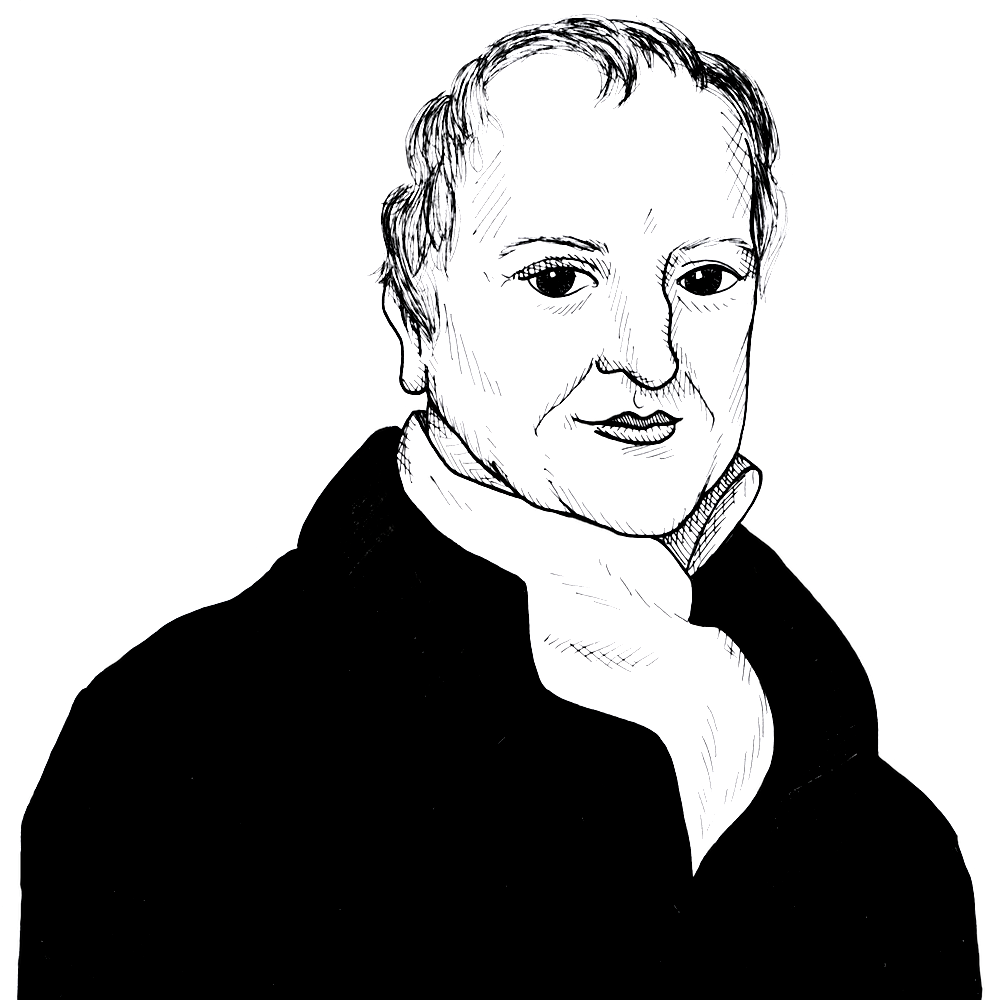
Critical Responses
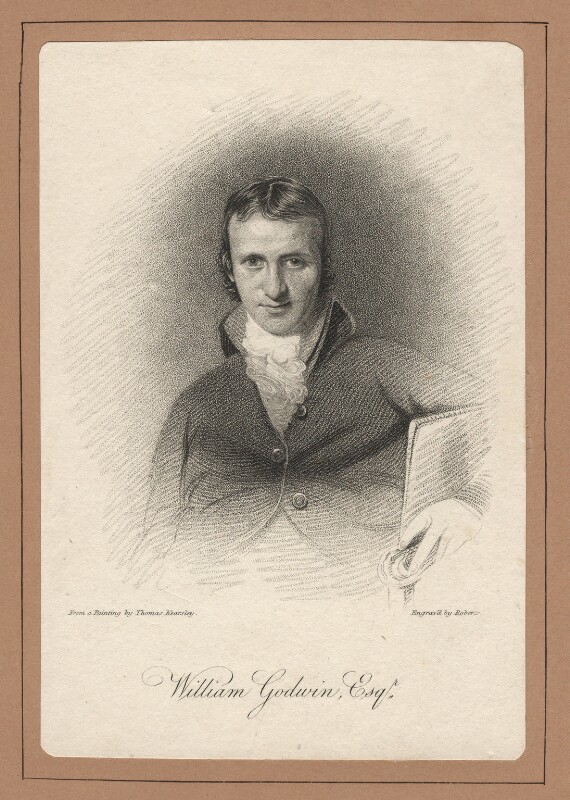
William Godwin
A lengthy and belated reply to Malthus by the radical individualist Godwin. Whereas Malthus took a pessimistic view of the pressures of population growth, Godwin was more optimistic about the capacity of people to limit the growth of their families.
Morgan Rose
Malthus had no objection to the idea that wealth derived from manufacturing production could, subject to certain hindrances, be exchanged to increase the amount of food available. He seems only to have misjudged the degree to which those hindrances would be reduced over time. He did not recognize…

Paul Romer, Stanford University professor and Hoover Institution Senior Fellow talks with EconTalk host Russ Roberts about growth, China, innovation, and the role of human capital. Also discussed are ideas in creating growth, the idea that ideas allow for increasing returns, and intellectual…
Connected Readings

David Ricardo
Ross Emmett
An AdamSmithWorks Essay
While many liberty-loving economists are happy to correct the criticisms of Smith, many are equally happy to criticize Malthus for the Malthusian trap, not realizing that the usual portrayal of Malthus is equally false. Malthus shares far more with Smith than most expect. He is, in many ways, as…
- Architecture and Design
- Asian and Pacific Studies
- Business and Economics
- Classical and Ancient Near Eastern Studies
- Computer Sciences
- Cultural Studies
- Engineering
- General Interest
- Geosciences
- Industrial Chemistry
- Islamic and Middle Eastern Studies
- Jewish Studies
- Library and Information Science, Book Studies
- Life Sciences
- Linguistics and Semiotics
- Literary Studies
- Materials Sciences
- Mathematics
- Social Sciences
- Sports and Recreation
- Theology and Religion
- Publish your article
- The role of authors
- Promoting your article
- Abstracting & indexing
- Publishing Ethics
- Why publish with De Gruyter
- How to publish with De Gruyter
- Our book series
- Our subject areas
- Your digital product at De Gruyter
- Contribute to our reference works
- Product information
- Tools & resources
- Product Information
- Promotional Materials
- Orders and Inquiries
- FAQ for Library Suppliers and Book Sellers
- Repository Policy
- Free access policy
- Open Access agreements
- Database portals
- For Authors
- Customer service
- People + Culture
- Journal Management
- How to join us
- Working at De Gruyter
- Mission & Vision
- De Gruyter Foundation
- De Gruyter Ebound
- Our Responsibility
- Partner publishers

Your purchase has been completed. Your documents are now available to view.
An Essay on the Principle of Population (1798)
From the book the future of nature.
- Thomas Malthus
- X / Twitter
Supplementary Materials
Please login or register with De Gruyter to order this product.
Chapters in this book (51)

- Education & Teaching
- Schools & Teaching

Enjoy fast, free delivery, exclusive deals, and award-winning movies & TV shows with Prime Try Prime and start saving today with fast, free delivery
Amazon Prime includes:
Fast, FREE Delivery is available to Prime members. To join, select "Try Amazon Prime and start saving today with Fast, FREE Delivery" below the Add to Cart button.
- Cardmembers earn 5% Back at Amazon.com with a Prime Credit Card.
- Unlimited Free Two-Day Delivery
- Streaming of thousands of movies and TV shows with limited ads on Prime Video.
- A Kindle book to borrow for free each month - with no due dates
- Listen to over 2 million songs and hundreds of playlists
- Unlimited photo storage with anywhere access
Important: Your credit card will NOT be charged when you start your free trial or if you cancel during the trial period. If you're happy with Amazon Prime, do nothing. At the end of the free trial, your membership will automatically upgrade to a monthly membership.

Buy new: $14.95 $14.95 FREE delivery: Monday, April 8 on orders over $35.00 shipped by Amazon. Ships from: Amazon.com Sold by: Amazon.com
Return this item for free.
Free returns are available for the shipping address you chose. You can return the item for any reason in new and unused condition: no shipping charges
- Go to your orders and start the return
- Select the return method
Buy used: $8.94
Fulfillment by Amazon (FBA) is a service we offer sellers that lets them store their products in Amazon's fulfillment centers, and we directly pack, ship, and provide customer service for these products. Something we hope you'll especially enjoy: FBA items qualify for FREE Shipping and Amazon Prime.
If you're a seller, Fulfillment by Amazon can help you grow your business. Learn more about the program.

Download the free Kindle app and start reading Kindle books instantly on your smartphone, tablet, or computer - no Kindle device required .
Read instantly on your browser with Kindle for Web.
Using your mobile phone camera - scan the code below and download the Kindle app.

Image Unavailable

- To view this video download Flash Player
Follow the author

An Essay on the Principle of Population (Oxford World's Classics) 1st Edition
Purchase options and add-ons.
- ISBN-10 0199540454
- ISBN-13 978-0199540457
- Edition 1st
- Publisher Oxford University Press
- Publication date August 1, 2008
- Language English
- Dimensions 7.6 x 5 x 0.5 inches
- Print length 172 pages
- See all details

Frequently bought together

Similar items that may deliver to you quickly

From the Publisher

Editorial Reviews
About the author, product details.
- Publisher : Oxford University Press; 1st edition (August 1, 2008)
- Language : English
- Paperback : 172 pages
- ISBN-10 : 0199540454
- ISBN-13 : 978-0199540457
- Item Weight : 5.6 ounces
- Dimensions : 7.6 x 5 x 0.5 inches
- #534 in Demography Studies
- #2,004 in Theory of Economics
- #2,943 in Study Skills (Books)
About the author
T. r. malthus.
Discover more of the author’s books, see similar authors, read author blogs and more
Customer reviews
Customer Reviews, including Product Star Ratings help customers to learn more about the product and decide whether it is the right product for them.
To calculate the overall star rating and percentage breakdown by star, we don’t use a simple average. Instead, our system considers things like how recent a review is and if the reviewer bought the item on Amazon. It also analyzed reviews to verify trustworthiness.
Reviews with images

- Sort reviews by Top reviews Most recent Top reviews
Top reviews from the United States
There was a problem filtering reviews right now. please try again later..
Top reviews from other countries
- Amazon Newsletter
- About Amazon
- Accessibility
- Sustainability
- Press Center
- Investor Relations
- Amazon Devices
- Amazon Science
- Start Selling with Amazon
- Sell apps on Amazon
- Supply to Amazon
- Protect & Build Your Brand
- Become an Affiliate
- Become a Delivery Driver
- Start a Package Delivery Business
- Advertise Your Products
- Self-Publish with Us
- Host an Amazon Hub
- › See More Ways to Make Money
- Amazon Visa
- Amazon Store Card
- Amazon Secured Card
- Amazon Business Card
- Shop with Points
- Credit Card Marketplace
- Reload Your Balance
- Amazon Currency Converter
- Your Account
- Your Orders
- Shipping Rates & Policies
- Amazon Prime
- Returns & Replacements
- Manage Your Content and Devices
- Recalls and Product Safety Alerts
- Conditions of Use
- Privacy Notice
- Consumer Health Data Privacy Disclosure
- Your Ads Privacy Choices
My experience as an emergency patient soured me on Tennessee's Certificate of Need law
State's con laws should be repealed before more people face devastating experiences like i did..
Leslie Huggins is a former first responder and a Murfreesboro resident.
Last January, I was experiencing pain and went to the hospital. During my initial visit, I was triaged and sent back to the treatment area where I waited on a gurney in an open area to be seen. I was sent home and told to reach out to my primary care doctor.
I eventually spoke with my doctor about the medical issue and he advised me to go back to the hospital for admission.
My concern was immediate, as he explained that I would need to go to the emergency room to have any chance of being admitted. My blood pressure at that time was extremely high.
I checked into the emergency room at around 9 a.m. and then I spent at least 18 hours on a gurney. I spoke to a nurse in the hallway during my wait who informed me that it could be days before the hospital had an open bed. I felt completely helpless.
At one point, an elderly gentleman was admitted who was suffering from difficulty breathing. He needed immediate medical attention, but because there were no rooms, he was treated alongside me and other patients in the hallway. On top of feeling helpless, I was now scared for his well-being and the health of the patients who had now been exposed to his illness. He went into cardiac arrest behind me and the medical staff struggled to find him a bed.
After leaving the hospital, I thought to myself, “there must be something wrong here.”
Eventually, I learned from a friend who works in the health care industry that Tennessee’s Certificate of Need (CON) laws are at least in part to blame for lengthy wait times in hospitals around the state. These laws have been blocking access to affordable, quality health care in Tennessee for decades.
Counterpoint: Tennessee Certificate of Need health care laws can be improved but should not be repealed
Why we need to allow more health care centers to compete
Like so many Tennesseans, I had absolutely no idea what CON laws were before my incident, nor had I even heard the term.
CON laws require hospitals and other health care providers to demonstrate a “need” for their services before they can be granted approval to open a new health care facility or provide new services. While this may sound reasonable at first, the fundamental problem is CON is essentially a government permission slip to provide care. Any health care providers must ask a government board in Nashville for permission to provide essential care to Tennessee communities.
My case is one of many and shows that the CON requirements are preventing access to care for Tennesseans. Existing hospitals and other providers can block another hospital from being built in or near the area they are already operating. This is as disturbing as it sounds. We should not be protecting businesses and their bottom lines at the expense of access to care for patients.
I live in Murfreesboro, and it is one of the fastest growing areas in the country. Vanderbilt University Medical Center sought to build a new hospital in our county last year to meet increased demand. Unfortunately, the Tennessee Health Facilities Commission in Nashville denied the CON required for the project to proceed.
State senator is working to chip away at the current law
I am devastated that more Tennesseans will likely have the same experience I did. It’s simple math: as our state’s population continues to grow, we must allow our health care infrastructure to grow unimpeded along with it. Wait times will only continue to worsen.
Tennessee’s state legislature has taken steps in the past to repeal portions of the state’s CON laws, but I have seen firsthand that the regulations remaining today have real life consequences for Tennesseans.
These bureaucratic laws continue to decrease access to the care we depend on and unnecessarily delay and deny much needed care. I am thankful state Sen. Shane Reeves , R-Murfreesboro, realizes the importance of repealing many of these harmful laws and is supporting legislation to do just that.
I urge the rest of the General Assembly to join him in working to repeal many of Tennessee’s remaining CON laws this legislative session.

COMMENTS
The book An Essay on the Principle of Population was first published anonymously in 1798, [1] but the author was soon identified as Thomas Robert Malthus. The book warned of future difficulties, on an interpretation of the population increasing in geometric progression (so as to double every 25 years) [2] while food production increased in an ...
An immediate act of power in the Creator of the Universe might, indeed, change one or all of these laws, either suddenly or gradually, but without some indications of such a change, and such indications do not. An Essay on Population 75. First printed for J. Johnson, in St. Paul's Church-Yard, London.
Introduction. I. The proverbial relationship of great rivers to small springs is well illustrated by Robert Malthus's most famous work. The Essay on Popu-lation surfaced in 1797 in the form of a friendly argument between the author and his father: it has continued to flow, often as a disturbing tor-rent, ever since.
By Thomas Robert Malthus. Essay on the Principle of Population. The first, published anonymously in 1798, was so successful that Malthus soon elaborated on it under his real name. * The rewrite, culminating in the sixth edition of 1826, was a scholarly expansion and generalization of the first.Following his success with his work on population ...
sister projects: Wikipedia article, news, Wikidata item. The book An Essay on the Principle of Population was first published anonymously in 1798 through J. Johnson (London). The author was soon identified as The Reverend Thomas Robert Malthus. While it was not the first book on population, it has been acknowledged as the most influential work ...
"An Essay on the Principle of Population" thrust Malthus into the public eye and dealt such a lethal blow to utopian visions that economics was soon called "the dismal science." In 1805, Malthus became the first person in England to receive the title of political economist when he was appointed professor of history and political economy at the ...
About this eBook. Produced by Charles Aldarondo. HTML version by Al Haines. Public domain in the USA. 277 downloads in the last 30 days. Project Gutenberg eBooks are always free! Free kindle book and epub digitized and proofread by volunteers.
Within political society, there were difficulties: Malthus was a Whig, and the mid-1790s were hardly an auspicious period for Whig politics. Yet his Essay on the principle of population as it affects the future improvement of society enjoyed immediate and controversial success.
A comprehensive edition of Malthus's influential work on population, politics, and economics, with essays on its historical and theoretical context, its implications, and its cultural impact. The 1803 edition of the Essay is the first publication of this edition, which includes contributions from experts on Malthus's influence, nature, and modern ideas.
of the checks to population in the less civilized parts of the world, and in past times. download; xml; of the checks to population in the different states of modern europe. download; xml; of the different systems or expedients which have been proposed or have prevailed in society, as they affect the evils arising from the principle of ...
Malthus's Essay on the Principle of Population remains one of the most influential works of political economy ever written. Most widely circulated in its initial 1798 version, this is the first publication of his benchmark 1803 edition since 1989. Introduced by editor Shannon C. Stimson, this edition includes essays on the historical and political theoretical underpinnings of Malthus's ...
Overview. An Essay on the Principle of Population by Thomas Malthus was first published anonymously in 1798. Its core argument, that human population will inevitably outgrow its capacity to produce food, widely influenced the field of early 19th century economics and social science. Immediately after its first printing, Malthus's essay ...
Thomas Robert Malthus (1766-1834) demonstrated perfectly the propensity of each generation to overthrow the fondest schemes of the last when he published An Essay on the Principle of Population (1798), in which he painted the gloomiest picture imaginable of the human prospect. He argued that population, tending to grow at a geometric rate, will ever press against the food supply, which at ...
Essay on the Principle of Population, Malthus emphasized the fact that every resource is limited, and he predicted that as the population grew, resources would become even more limited. Spiraling population growth would eventually outpace the increase in food supply, he argued, leading to famine and epidemics of disease. He thus viewed the
Essay on the Principle of Population. The first, published anonymously in 1798, was so successful that Malthus soon elaborated on it under his real name. * The rewrite, culminating in the sixth edition of 1826, was a scholarly expansion and generalization of the first.Following his success with his work on population, Malthus published often ...
An Essay on the Principle of Population The 1803 Edition. by Thomas Robert Malthus. Edited by Shannon C. Stimson. Series: Rethinking the Western Tradition. Course Book. Request Print Exam/Desk Copy; Request eBook Exam Copy; 624 Pages, 5.50 x 8.25 x 1.25 in, 2 b-w illus. Paperback; 9780300177411; Published: Tuesday, 13 Feb 2018;
Demography. This is the first edition of Malthus's Essay on the Principle of Population. In this work Malthus argues that there is a disparity between the rate of growth of population (which increases geometrically) and the rate of growth of agriculture (which increases only arithmetically). He then explores how populations have historically ...
An Essay on the Principle of Population (1798) examines the tendency of human numbers to outstrip their resources, and argues that checks in the form of poverty, disease, and starvation are necessary to keep societies from moving beyond their means of subsistence. Malthus's simple but powerful argument was controversial in his time; today his ...
Malthus's Population Principle Explained. By Frank W. Elwell . This essay is a faithful summary of Malthus's original 1798 "Principle of Population." While nothing will substitute for reading the original essay with an open mind, I hope this summary will go some way toward rehabilitating this man's reputation.
Malthus, Thomas - An Essay on the Principal of Population (1798) Topics Books and Texts - M - NSL Collection folkscanomy_history; folkscanomy; additional_collections Language English. Malthus, Thomas - An Essay on the Principal of Population (EN, 1798, 140p.) Addeddate 2017-03-24 03:26:49
Vol. 1 of the 6th expanded edition of Essay on the Principle of Population. In this work Malthus argues that there is a disparity between the rate of growth of population (which increases geometrically) and the rate of growth of agriculture (which increases only arithmetically). He then explores how populations have historically been kept in check.
"An Essay on the Principle of Population (1798)" In The Future of Nature: Documents of Global Change edited by Libby Robin, Sverker Sörlin and Paul Warde, 15-30. New Haven: Yale University Press, 2013.
An Essay on the Principle of Population (1798) examines the tendency of human numbers to outstrip their resources, and argues that checks in the form of poverty, disease, and starvation are necessary to keep societies from moving beyond their means of subsistence. Malthus's simple but powerful argument was controversial in his time; today his ...
My experience as an emergency patient soured me on Tennessee's Certificate of Need law State's CON laws should be repealed before more people face devastating experiences like I did.